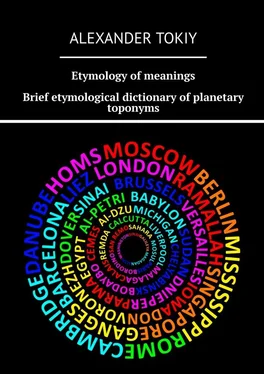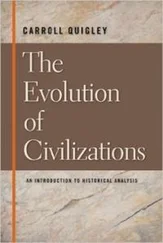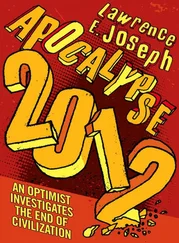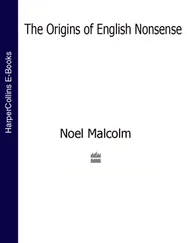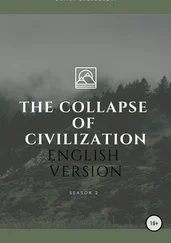Many toponyms\place names of my beloved Crimea have also preserved their ancient roots. For example, in the Crimea there is a river called Putamish—“po-ta-ms”. It originates in the Babugan-yayly mountains, and therefore refers to the movement “on the road down from the mountain”. Into this river flows a smaller river called the Western Putamis, which also retains in its name the ancient sound of drinking. And some rivers got new names. Other peoples who spoke other languages and dialects came and invented or brought with them names that they could understand better. For example, the Ulu-Uzen’ River, flowing near the city of Alushta, was formerly called Megapotamo. Thus, in different parts of the world you can find place names with the same roots: the Potamo, the Megapotamo, the Potomac, the Putamish and the Mesopotamia. In the latter, two “ms” are hidden at once, dating back to the oldest civilizations in the interfluve of the Tigris and the Euphrates.
Not always hydrological toponyms\place names were formed from the ancient protoroot “ms”, reduced “su” or hissing sounds. Some water bodies were named for other features or geographical features. Then the ancient prepositions came into play – first of all “do” and “no”, which had the meaning of the limit or its absence, as in the case of the word “gluboko” (deep) or the abyss. There are a lot of rivers that cannot be forded, and toponyms\place names that have “no bottom”: the Don River, the Dnieper River, the Dunai River (the Danube), the Dniester River, the Jordan River, Sudan, London, Covadonga, Caledonia, Macedonia, Dongola, Medina, Magadan, Grodno, Andenn, Wiesbaden, Aberdeen, Ardennes and others.
The simplest name, formed by the prepositions “do” and “no”, is our famous Don River, a deep place that cannot be crossed. The Don River flows calmly and steadily, and you can’t reach the bottom. The Dnepr River is another matter. Aggressive protoroot “pr” meant obstacles that water pierces – for example, the Dnieper River rapids, which since ancient times were a distinctive landmark in the area, along the river. Therefore, the Dnieper River should be perceived as an unpredictable river with obstacles.
The main role in the name of the Dniester River is played by the protoroot “str”, which is well-preserved not only in Russian, but also in many languages of the world and is easily perceived in the meaning of “rapid” or “fast”. The Dniester River is a fast river. From protoroot “str” there was a considerable number of words in different languages “stremit`sya” (to strive), “ostrov” (island), “srtuna” (string), “strelyat’” (to shoot), “strezhen’” (rod/centre), a “strata” (strat), “strateg” (strategist), Strasse, street, etc. If you take it literally, it is formed from two roots: “s” is for “water” and “tr” is a “hole”. And it denotes the water that flows rapidly out of the hole. By the way, in the upper reaches of the Dniester River has a narrow deep channel and seems to break through the mountain range.
Moreover, the word “strategiya” (strategy), now so beloved by politicians of various stripes, also goes back to the protoroot “str”. Dictionaries explain the origin of this word from the ancient Greek “στρατηγία” (stratigia) and translate it as “the art of a commander”. But this is a late interpretation. If we parse the word in protoroots, we get a very clear semantic series: “str” is quickly, “ti” is “to do”, “ga” is the way.” That is “rapidly make the way”, move to the victory. I think the Greeks were intuitively and naturally right to give this word a military merit.
Listening to the protoroots of the Dunay (Dunai) river, it is enough to explain the meaning of this hydronym. “Ay” is a mountain, and the Danube originates in the mountains of Germany, is a river running from the mountains.
The Iordan (Jordan) River is more difficult. The name also consists of two roots. “ior” is a distorted “ar” is “the earth”. In this case, “ar” stands for “land in water”. In other words, it is a dirty, muddy river, a river with dirty water. By the way, a slightly distorted protoroot “ar” is also present in the name of the Missouri River—“ms-ur”. How did the American Indians translate this name? That’s right—“dirty river”. Later, the Greeks, and after them the Romans, began to associate dirty water with urine, so the word “urina” appeared. Even later, there were “urns”– vessels for collecting sewage. Enterprising slaves serving urns in the Colosseum offered to charge the Emperor Vespasian for using them – so the catch phrase “money has no smell” appeared.
However, let’s go back to our-not our Don River, deep bottom and river bosom. Once I received an angry comment in my email. A young lady wrote that the name of the city of London comes from the Latin “Londinium”, so there is no need to compose any nonsense and mislead students. At first I wanted to respond to her and even recorded my response on video. But there was no dialogue or feedback.
Indeed, there was a period when London was called “Londinium” according to Latin grammar. But this place was named before the Romans – the Celts called it “Londin”, in turn inheriting this toponym\place name, as the encyclopedias say, from the local inhabitants. Who these natives were? History is silent. But when they named this area, they proceeded from the semantic morphemes of the ancient protolanguage. Those who replaced them did not know this language any more and inherited only the form of the toponym\place name, without understanding its meaning.
In general, almost all toponyms\place names in the UK, as well as the word “Britain”, become clear when the ancient roots and the Russian language come to the rescue. All names have a deep meaning, reflecting the features of the landscape. I will not say that these words are Russian toponyms\place names, although this suggests itself. But one thing is certain: those who gave the names of the area, were good friends with the ancient and possibly Russian language. If you listen to that Professor Anatoly Klesov tells you, Europe used to be inhabited by tribes that were later displaced to its Eastern part. These tribes gave the names of the locality, which are so easily corresponded with the Russian language. With all the changes, the toponym\place name “London” clearly retained its “native” root, and I would say “russian” basis. The consonantal sounds, “l-n-d-n” are the keepers of meaning, and they have been clearly heard in the London’s fog for centuries.
But the secret of the name of London will help us understand… the German city of Kel`n (Cologne). Its name comes from the Latin word “colony”, and Kel`n was once part of the Roman Empire. Later, the peoples who inhabited it changed, the name was pronounced in a new way, with distortions, but the root basis remained the same: “K-l-n”. This word also goes back to the ancient prepositions “k” and “o”, which are well understood in Russian. The combination of these prepositions has the meaning “to round” or “round”. A “colony” is a “bosom around”, a wasteland, an open area without dense vegetation – taken, mastered, satisfied, fertilized. Once people of the same kind – tribe, settling around, developed new and better areas of land, often capturing them from other tribes and establishing their own beginning. Such words as “koloniya” (colony), “pokolenie” (generation), “koleno”—“degree” (including Israel’s) knee, “klan” (clan), and others originate from the ancient prepositions “k” and “o”.
If in the word “koloniya” (colony) instead of protoroot “ko” (round, around) include another protoroot, the ancient preposition “po”, we get a different meaning of the word “lono” (bosom) —it will stretch “along”, capturing all new territories. This combination of protoroots formed many words: Poland, “polyana” (meadow), “polyy” (open\empty), “poleno” (log), “palenyy” (scorched), “polyn`ya” (thawed patch), “plen” (captivity), etc. But at the heart of everything is the “lono”. What does it mean? “No” is a negation, an objection, “l” is something pleasant, loved, giving pleasure. In relation to the area and its geographical features, the sound “l” also denoted vegetation, forest. Therefore, the “lono” is a plot without vegetation, land without forest, a place of rest from a dense stand of trees, a sunny meadow. By the way, the word “leto” (summer) is also a combination of protoroots: “l” is for vegetation and “to” is for place, presence. This is the time when everything blooms and grows.
Читать дальше
